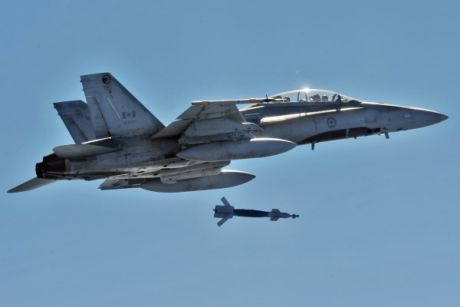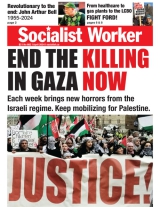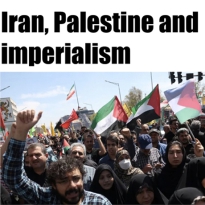News
You are here
Trudeau: stop Harper's war on Iraq and Syria

February 8, 2016
Despite Trudeau’s insistence that the bombing campaign would end when he was elected, we are now more than three months into the Liberal mandate and Harper's war on Iraq and Syria continues.
As of January 30, Canadian warplanes have conducted 2077 sorties in Iraq and Syria. The Department of National Defence continues to boast of mission success although the results of the bombing are unverifiable. Their sanitized version of events is belied by recent accusations that Canada was involved in killing civilians in Iraq.
From 'real change' to no change
The Liberals have been characteristically vague about next steps. The new Defence Minister Harjit Sajjan has said that Canada will develop a “robust” new plan for intervention that may include increasing troop trainers—who are often involved in combat—and a humanitarian component. They have also hinted that this may be expanded into both Lebanon and Jordan although we aren’t told what role the Canadian Forces will play while there.
Pressure continues to grow from the Tories, the punditocracy and from other NATO partners who argue that Canada needs to keep the planes in the fight. Unless we are able to bring some opposing pressure to bear on the Liberals, it is likely that they will continue to drag their feet and may, in fact, extend the mission when it is up for debate at the end of March.
Canada’s contribution to the war is relatively small but for other NATO partners it is important for political reasons. The western rulers are intent on launching ever more brutal wars. For example, Britain and France are attempting to find support for new bombing campaign in Libya despite the fact that the last war against that country left it in chaos.
Any county that threatens to pull out of the bombing challenges the notion that more imperial violence will somehow solve the problems plaguing the region. That makes it all the more vital that we build a movement to challenge imperialism in Canada and to make sure that the warplanes are brought home.
Regional rivalry
US and Russia are both pushing for an end to the conflict in Syria and have developed a plan for peace talks. The scheduled talks on Syria have been bogged down in fights from the beginning and some of the key actors in the region are being shut out. The not-Saudi-backed Syrian opposition refuses to meet unless a ceasefire is put in place and Kurdish groups that have been central to the fight against ISIS are denied a seat at the table by Turkey.
Meanwhile, the contours of the terrain in the greater Middle East continue to change. The biggest factor—the Iranian nuclear deal—will alter the balance of forces considerably.
The deal ended sanctions on Iran and resulted in a shopping spree by both the Iranian state and corporations. In a string of visits to European states, the Iranians inked deals on everything from car production to oil distribution to a mammoth purchase of more than 100 jets from Airbus. All told, meetings in Italy and France reached deals totaling more than $60 billion. For a struggling European economy, Iran has become a godsend.
The nuke deal has angered the Saudi ruling class, which considers Iran a main rival to its economic dominance in the region.
As these regional and global rivalries heat up, there will be more calls for military responses and calls for people to settle into one of the various camps in the fight.
Build the movement
We need to challenge this by building a movement in Canada that can challenge our government’s support for war. On February 2 in Ottawa, approximately 60 people packed into a meeting entitled Iraq and Syria: Yes There Is An Alternative to Bombing. Peggy Mason, president of the Rideau Institute and Ceasefire.ca, made a presentation on the situation in Syria and Iraq and argued that Canada's military should not be involved in either more airstrikes or training of local fighters. She noted that the current Liberal government has so far said nothing about a timeline for ending Canada's participation in the airstrikes, nor have they issued any public statements arguing the case for ending the mission. She further noted that the original end-date for Canada's participation is this coming March, which was agreed to under the previous Harper government, but that the Liberals under Justin Trudeau have so far said nothing about if that date will be adhered to.
The meeting focused on what can be done to pressure Liberal MPs to follow through on the campaign promise to end the airstirkes. After the presentation, the meeting agreed to lobby Ottawa-area MPs. The meeting also collected suggestions for further activism, including the idea of generating a postcard/petition to be spread through churches, labour unions and community groups, and the possibility of building towards some sort of demonstration in the spring. Members of the Canadian Peace Alliance, NoWar/Paix and the Public Service Alliance of Canada (PSAC) were the key organizers of the event. The organizers expect to be in touch with all attendees within the next couple of days to plan a follow-up session.
There are actions planned all over the world on the weekend of March 19-20 calling for an end to war and racism. This will be a good opportunity to push the new Trudeau government to end the bombing, bring the troops home and cancel arms sale to the region.
Sign the petition from the Canadian Peace Alliance
Section:
Topics:










